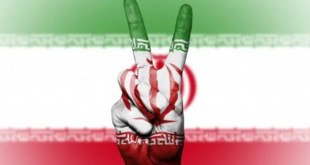TEHRAN (Reuters) — Iran said on Monday it was pressing ahead with a plan to install 3,000 atomic centrifuges and achieve industrial-scale production of nuclear fuel, which the West fears is part of a programme to make bombs.
Tehran, countering diplomatic reports of delays, seemed to be reaffirming a defiant vow, made after the UN Security Council slapped limited sanctions on it last month, to start rigging up 3,000 centrifuges at its fuel-enrichment plant.
Experts say that number could enrich enough uranium for power plant fuel, or one bomb within a year.
A senior diplomat familiar with International Atomic Energy Agency (IAEA) inspections in Iran said on Monday there was no evidence yet Tehran had started centrifuge installation in the cavernous underground section of the Natanz enrichment complex, but said there were indications this could begin in a few days.
“We are moving towards production of nuclear fuel which needs 3,000 centrifuges and more than that,” Iranian government spokesman Gholamhossein Elham told a weekly news conference.
President Mahmoud Ahmadinejad, visiting Ecuador, told a Reuters reporter later in the day that the expansion of uranium enrichment facilities at Natanz would take place “very soon, bit by bit.” Iran has vowed not to shelve enrichment work. It says its nuclear programme is solely aimed at generating electricity. The United States and the European Union suspect Tehran is seeking to build nuclear bombs and say it will face broader, financially harsher sanctions if it ignores the UN resolution, which gave Iran 60 days to stop enrichment activity.
Iran already operates two experimental cascades of 164 centrifuges, which spin at supersonic speeds to purify uranium.
Another senior diplomat versed in the operations of the IAEA, the UN nuclear watchdog, said Tehran still appeared to be both feeding uranium into these centrifuges, enriching token amounts, and test-running them empty, a pattern prevailing for some months.
IAEA inspectors visit Natanz
Senior IAEA inspectors went to Natanz last week for a fresh look at both the above-ground research wing and the underground hall and were expected to return to Vienna later this week.
The diplomat said the inspectors did not expect to find any change in operations in the experimental section.
“At last report, they had not yet installed piping and casing in the [underground section] required to put in the centrifuges, so we will now see how far along they are with preparations,” he said.
But diplomats close to the IAEA said Iran looked unlikely to bring on line 3,000 centrifuges by its announced deadline of March 20, the end of the Iranian year. “It will probably take some months yet,” the second senior diplomat said.
Diplomats said the pace of enrichment at Natanz still seemed slow and cited several possible reasons — technical problems, political second thoughts after moderates counselling nuclear restraint did well in nationwide elections against hardliners close to Ahmadinejad, or a secret plant where Tehran had already mastered the process — there is no known intelligence information to suggest that.
Iran has struggled to get centrifuges to run smoothly. Fifty of them blew up during testing last April when their power supply regulator malfunctioned, atomic energy organisation chief Gholamreza Aghazadeh was quoted as saying by local media.
“President Ahmadinejad called me… and said, ‘Even if something goes wrong 10 times, don’t worry, [build] it again’,” Aghazadeh was quoted by Ayand-ye newspaper as saying on January 4.
Iran has a plan to build 20 nuclear power plants and says it wants to make the low-enriched fuel itself, rather than rely on imports. Its first atomic plant is being built with Russian help.
“We need to produce fuel on an industrial scale for those power plants,” Elham said.
He said Iran’s nuclear activities were being supervised normally by the IAEA, but repeated a threat made by other Iranian officials to consider leaving the nuclear Non-Proliferation Treaty if pushed.
 Eurasia Press & News
Eurasia Press & News


